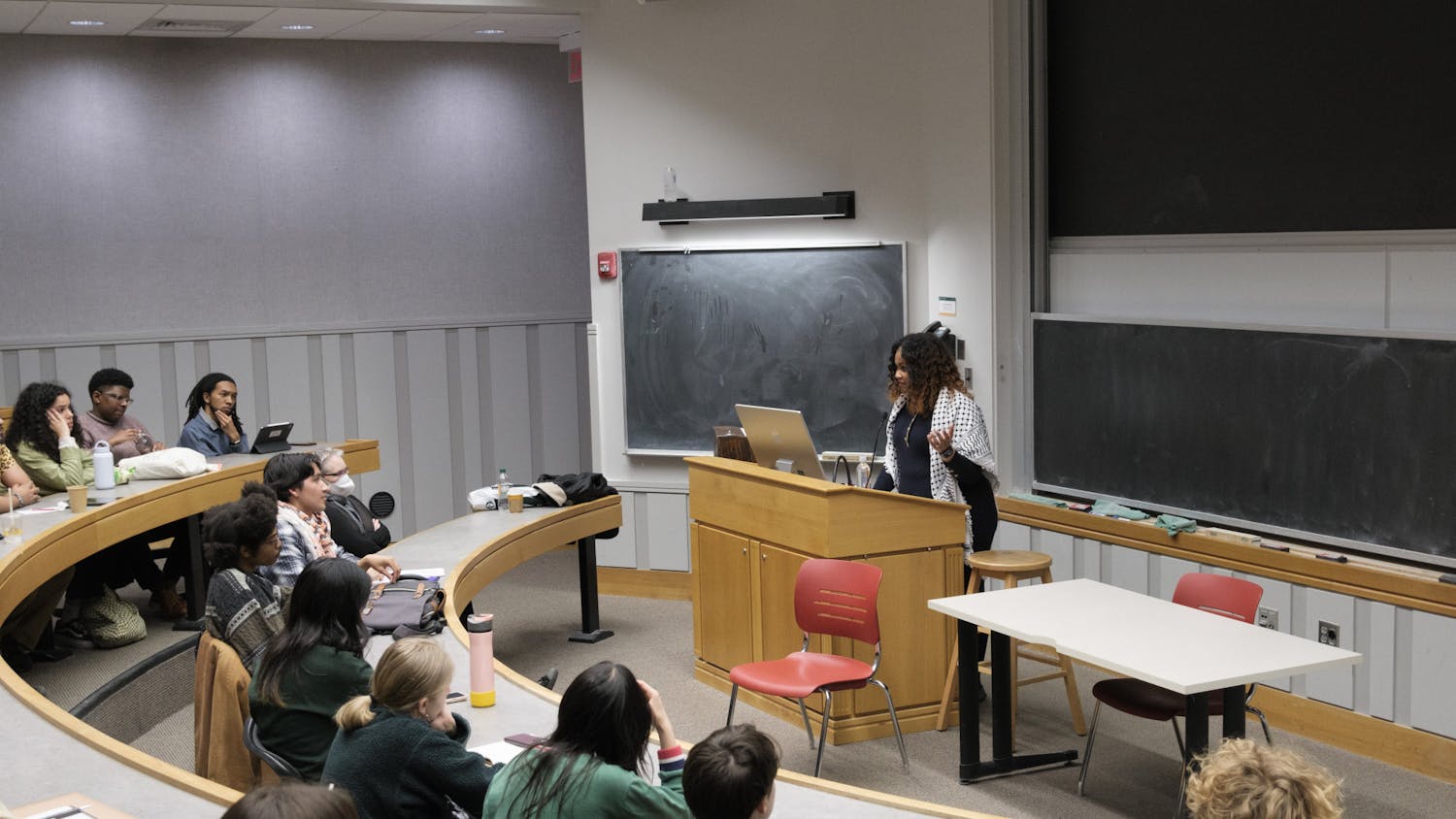The idea of the Department of Education limiting students' access to higher education may sound paradoxical, but the federal agency has the power to revoke federal financial aid funds if colleges and universities fail to collect and make public certain kinds of information mandated by Congress.
Although recent amendments to the law have captured public attention-- notably the Bush administration's No Child Left Behind plan, which mandates that schools report their graduation rates -- schools receiving federal funds have long been required to report information about themselves to the government.
While Dartmouth administrators said that the chances of Dartmouth's federal financial aid being withheld are virtually nonexistent, the connection between financial aid and the publication of certain statistics nevertheless raises questions about the kinds of obligations a private university has to the federal government.
For instance, reporting campus crime statistics is something Dartmouth thinks important irrespective of a federal obligation to do so, Assistant Dean of the College Mary Liscinsky said. On the other hand, collecting information about graduation rates for the sake of "accountability" seems unnecessary for a school as prestigious as Dartmouth, said Senior Associate Director of Financial Aid Beatrice Filimonov.
The reason for tying federal financial aid funding with the collection of such information is that it is illegal for the federal government to involve itself in the internal affairs of private educational institutions, said David Bergeron, head of policy and budget development at the Department of Education's Office of Post-Secondary Education.
"The only way we can get involved is through money, " he said. "We're not a ministry of education that can go in and dictate to institutions how they should operate."
In addition to statistics on campus crime and graduation rates, Dartmouth also supplies information on the number of male and female athletes and the kinds of mental and psychological counseling services it provides, among a host of other data.
"All those things they tell you, part of the reason is because we require it," Bergeron said.
According to both Dartmouth administrators and the Department of Education, the law -- and specifically the Clery Act, which requires the publication of campus crime statistics -- exists so that students and their parents will have access to important information when choosing which college to attend.
"The Congress thinks that students and their parents as consumers have a right to know about the crimes that occur around campus so they can decide where to enroll," Bergeron said.
But it is only in the last two years that colleges and universities have been required to submit this information to the Department of Education.
In theory, institutions that neglect to do so can be fined $25,000 for each instance of noncompliance, and, in extreme cases, can have federal financial aid funding withheld.
However, the Department of Education has never resorted to taking away student's federal financial aid.
"We never use the ultimate penalty of withdrawing federal financial aid funds," Bergeron said. For that to happen, "It would have to be a very egregious case . . . where an institution willfully did not comply."
Dartmouth administrators also said that the connection between financial aid and the College collecting information is less direct than it may seem.
For instance, with a large endowment to draw on and federal funding making up just seven percent of Dartmouth's financial aid packages, Dartmouth is far less dependant on government contributions to student aid packages than many other institutions.
Dartmouth received approximately $1.5 million in federal financial aid funding from 2001-2002, but that is "just a drop in the bucket compared to the $32 -34 million dollars the College provides to students," Filimonov said.
Despite relatively minimal financial contributions by the government, though, the Financial Aid Office bears a significant part of the burden for making sure all the correct information gets collected, Filimonov said.
"Graduation rates are not a problem for us, but it's just one more piece of information we have to collect and submit," she said.
Bergeron said that most universities seem eager to comply with the law and that it is more a question of the logistics of collecting and reporting the information than an objection to reporting the data in principle.
Some kinds of data may be easier to report than others. For instance, qualitative information about the nature of counseling services may be more difficult to encapsulate than straight statistics about the number of students receiving financial aid from Dartmouth.
But Liscinsky said that entering crime statistics at least, is easy to do, thanks to the Department of Education's website.
The Department of Education is careful, though, to stay clear of any internal disputes over who should be charged with collecting the information.
"As a federal official I don't care which department in the institution the responsibility is placed," Bergeron said. "It is their prerogative to house it wherever they want."



